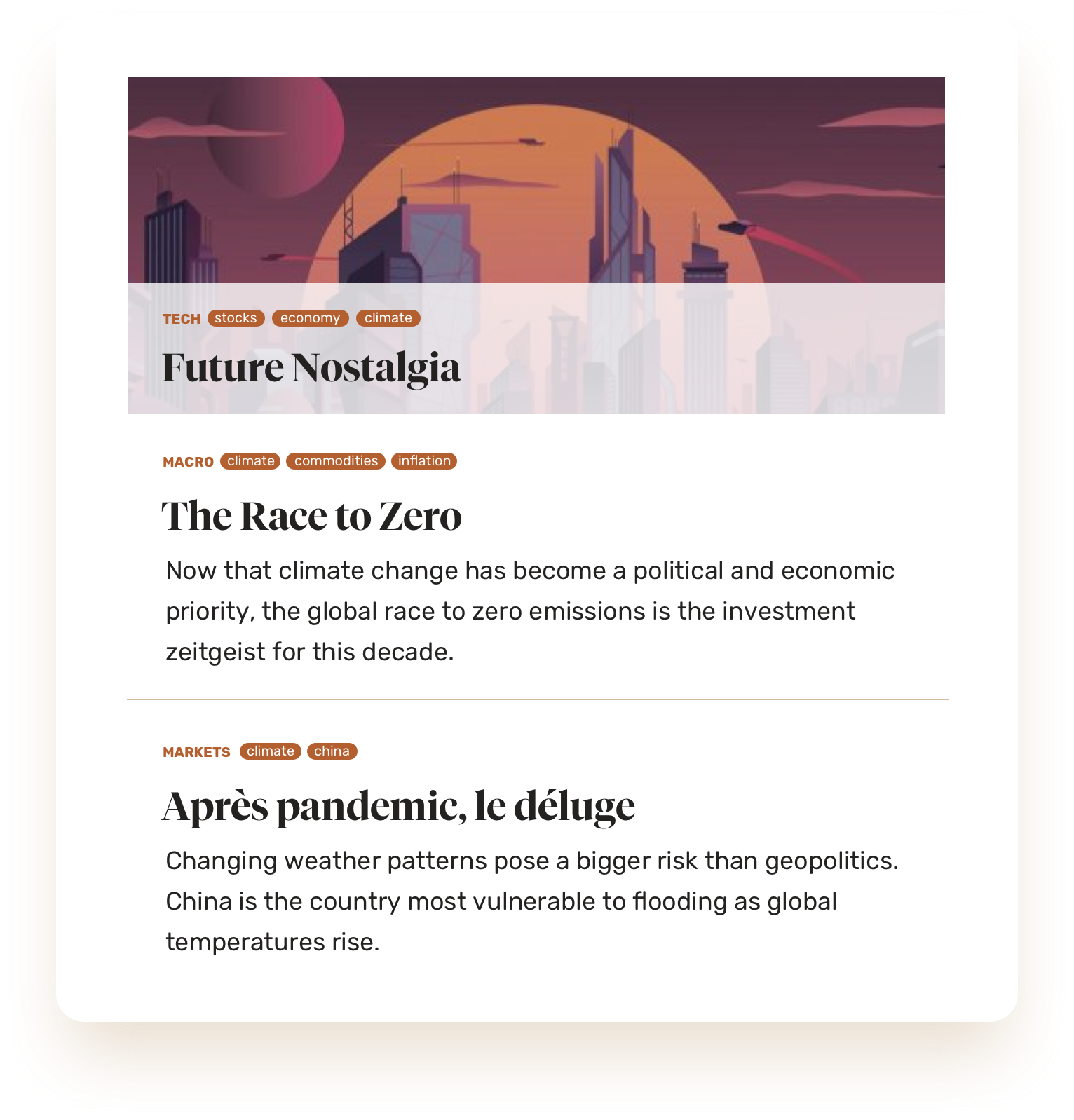We continue the conversation daily in our members-only Slack group, which has become a vibrant source of ideas and discussion. When the membership puts its heads together, it’s just easier (and more fun) to make sense of things.
Going forward, we will summarize the most helpful insights gained from the community.
1. Long Crazy Rich Asians
AF (Hong Kong): Kuaishou listed in HK today and is trading up 180 percent. Retail subscription was 1200x oversubscribed (in HK!) and this is a $175 billion market cap company. Funds that bought a late Series F round last year are up 5x at the moment for a 1-year hold—forget all the rounds before!
This is just the first major listing for the region in the New Year. The pre-IPO pipeline in the China space is substantial. The amount of wealth creation is very real, and it is feeling more likely that the melt up is going to come once travel resumes in the region.
And, oh yes, the company burns about $2 billion a year and is (obviously) not profitable. But who cares? It’s now got a Meituan narrative to it.
The greed tide is going global.
2. Short David
VB (Boston): I can’t help but think that the whole GameStop episode is just another “establishment” breaking down and being disrupted for a variety of reasons. This has parallels to what is happening to our politics. Disrupted by the heathens.
I think this has real implications for market structure. Any strategy that involves shorting equities has a serious structural problem now. If shorts begin to evaporate, does that make vol higher across the board? Are we more susceptible to flash crashes? Prime brokerages are huge drivers of PnLs at banks – what happens if their business is in decline? You may be able to be short, but being short with leverage is now simply asking for trouble.
CJ (San Francisco): We’ve been talking about this idea internally and if one believes (like we do) that it’s not a flash in the pan, then we could be heading back to a mid-90s era market. You had lots of retail participation, and without the “policing” of the short side, speculation and hype were rampant. This could dovetail right into Jawad’s “greed tide is just beginning” thesis.
Hedge funds will have to adapt. Need to be less vocal, focus on less crowded shorts, and until there’s enough short inventory this may force them to lower gross short exposure. This forces them to lower gross long if they want to maintain similar vol or net exposure.
JM (Toronto): This whole episode is going to attract more people into the market.Would love to see Q1 brokerage account opening figures. In the past year, US brokers added at least 10 million new retail trading accounts, more than ever before. Retail trading now makes up more than 20 percent of equity volume. WallStreetBets began the year with about 1.7 million members and has since surged to more than six million members
More participants and no one shorting. Imagine what that means for prices. Stay focused on the big picture. This is a great advantage to pile into stocks hedge funds are selling. Think of it as a wealth transfer.
3. Long Beauty Contests
CT (Austin): Crypto tends to follow a fund flow of BTC to ETH to smaller coins, which typically happens when BTC consolidates or loses volatility. The risk appetite moves elsewhere then flows back to BTC once people get too exposed to smaller projects.
Right now, the ETHBTC chart showing signs that ETH and smaller coins will start outperforming in a big way. Over 5 years, however, it will be hard to beat BTC.
PG (London): ETH has a big catalyst in CME futures trading start in February hence the outperformance, a lot of non-crypto specialist HFs are doing this trade including us.
JL (New Jersey): ETH is being pushed the whole month of February with Galaxy starting an institutional ETH fund as well. I’d be surprised if we are not over $2,000 by mid-March.
SB (Amsterdam): Do you do anything to manage risks at these levels?
CT (Austin): ETH is my biggest holding followed by BTC. My cost basis, conviction and time horizon is different than others. I also have a clear plan for any drawdowns which I expect to happen, and I expect them to be terrifying. So as famously said in Reminisces of a Stock Operator, “Sell down to your sleeping level.”
One thing that I find so much better and innovative about crypto is that I can collateralize my holdings (anything on ETH blockchain that is). So, there’s a much smaller impetus for me to sell on things I believe in. This is one of the reasons I’ve been bullish on SNX (disclosure, I own SNX) and other synthetic assets.
Let’s say I have 100 ETH and I’m up 200 percent. Risk management would say to sell some, take profits, book gains for taxes and then pyramid out the position. But now, I can just sit on the position and at any point put the ETH into a decentralized pool that offers loan terms and in the click of a button get stablecoin debt for 30-60 percent of the value of my ETH.
As stocks and other assets are tokenized, we will be able to do that as well. Imagine if you could buy a stock or an index fund and instead of having to sell it, you just takeout instant cash equivalents whenever you wanted to buy more? Loans run at about 4.5% APR right now.
The thing that needs to happen for the crypto market to grow is for people to turn fiat money into crypto money. For some people, BTC and ETH does that. For others, its stable coins. But for the masses, it’s a “get rich quick” scheme and right now DogeCoin is the ticket that is most accessible and cheapest.
Once they’re in the “system” they learn about BTC and everything else. I’ve talked to thousands of people over the years through the content channels. Same pattern, same story.
4. Short Arrogance
J.P. Morgan refused to invest in the Ford Motor Company at the dawn of the age of the automobile because, he said, “That’s just a toy for rich people.”
So, we asked the membership: what are some arrogant views today?
“Bitcoin is just to buy guns, drugs and porn online.”
“Robinhood retail traders are dumb money. They are doing stupid things, and this will end in tears.”
“Climate change is activism for kids.”
“Video games are for losers.”
“Digital interactions can never replace real life.”
“Life will immediately return to normal after a vaccine is administered. The end of the pandemic is in sight.”
If we are to invest wisely, we must learn from the arrogance and mistakes of our past.
5. Long Operas
I wrote this story for the SR issue but left it out. Posted it in the #life channel because I find it so amazing.
As a young student in Hamburg, Peter Drucker went to see the opera every week. He had very little money but showing up an hour before the performance meant scoring any of the unsold cheap seats allocated to university students for free.
Upon one evening, he sat for Falstaff. At this point he had taken in a host of offerings, but never anything like this one from Giuseppe Verdi. “I have never forgotten the impression that evening made on me,” Drucker said, totally overwhelmed by the great Italian composer’s comic opera.
Drucker was shocked to learn that Falstaff, with its incredible vitality and zest for life, was written when Verdi was eighty. “To me, then just eighteen, eighty was an incredible age.” This was a time when life expectancy, even among healthy people, was around fifty.
Then he read what Verdi himself had said, when asked why, at his age and famously considered one of the nineteenth century’s foremost opera composers, he had taken on the hard work of writing one more—an exceedingly demanding one, no less. “All my life as a musician,” he said, “I have striven for perfection. It has always eluded me. I surely had an obligation to make one more try.”
Those words made an indelible impression on Drucker. He resolved that, whatever his life’s work would be, Verdi’s words would be his lodestar. If he reached old age, he would keep striving for perfection knowing full well it would surely elude him
A year before Drucker passed away, at 95 years of age, having written 39 books and countless articles, he was asked if there was anything else in his long career that he wished he had done.
“Yes, quite a few things,” he said. “There are many books I could have written that are better than the ones I actually wrote. My best book would have been Managing Ignorance, and I’m very sorry I didn’t write it.”







